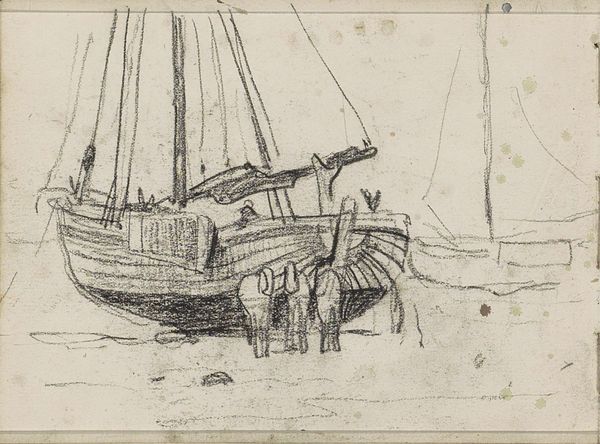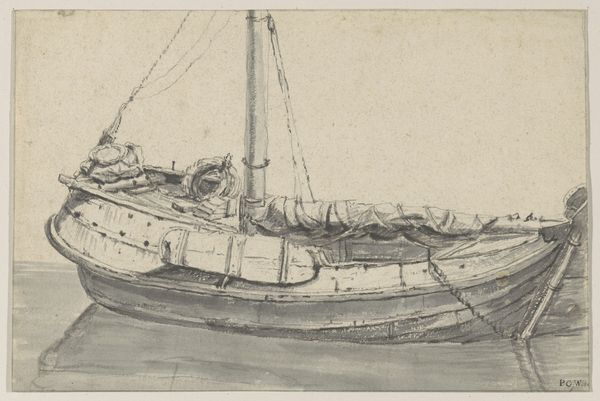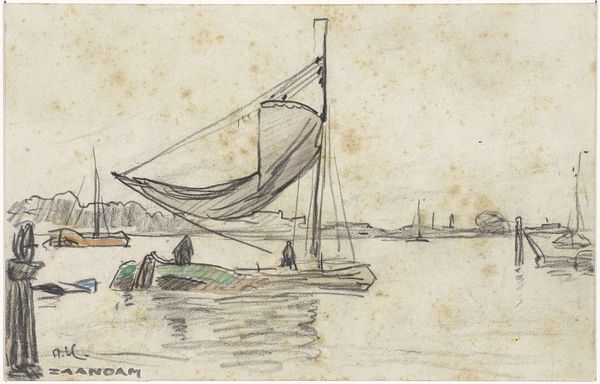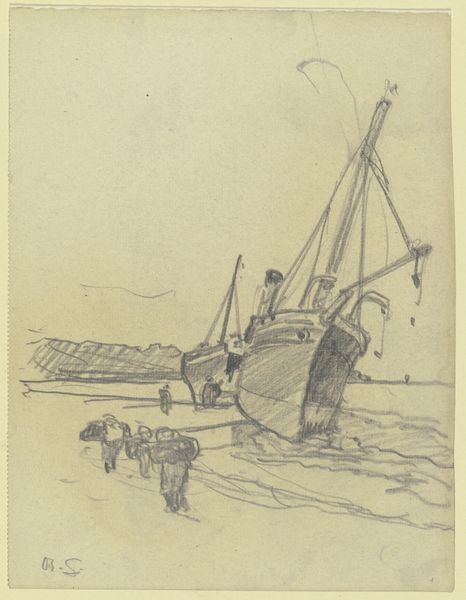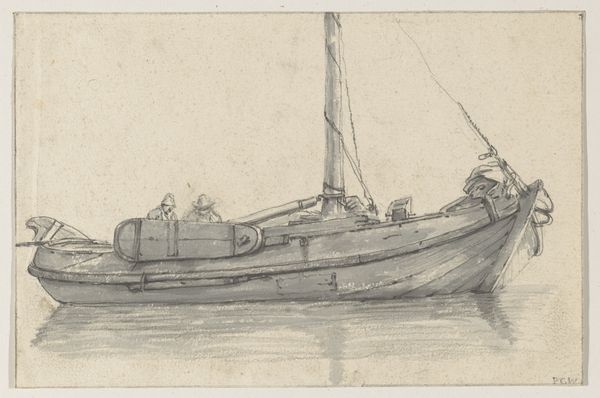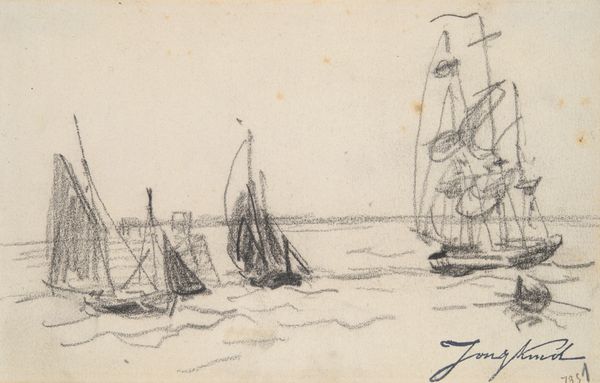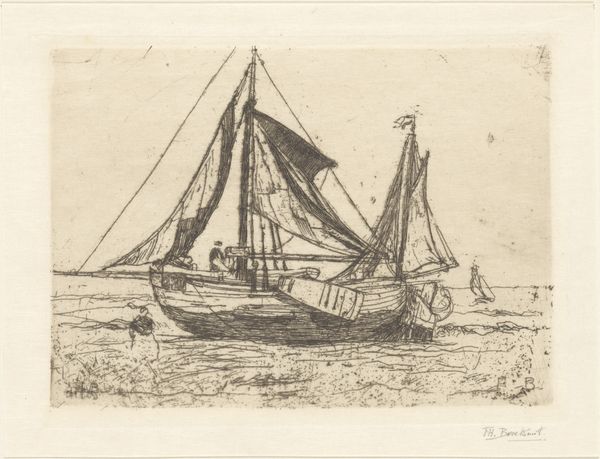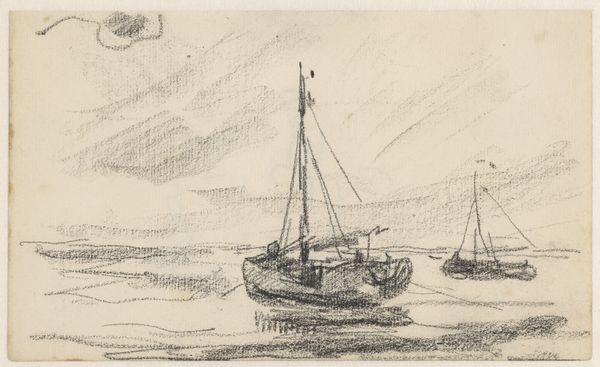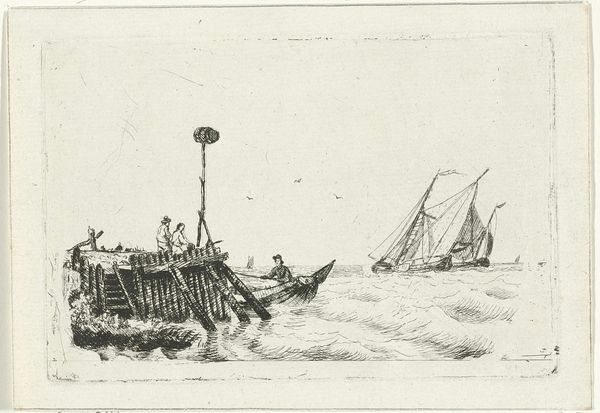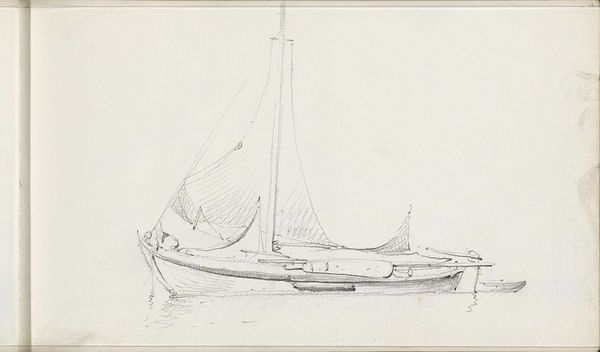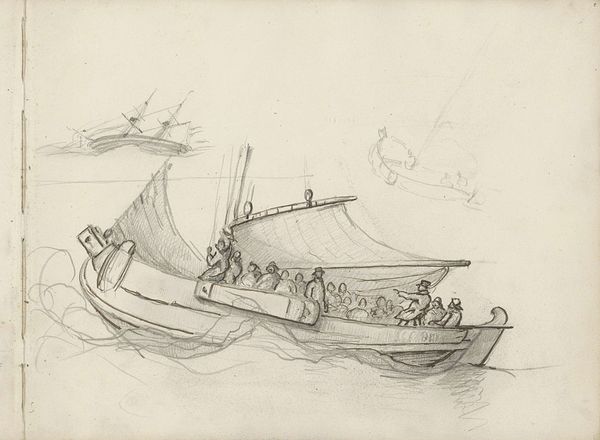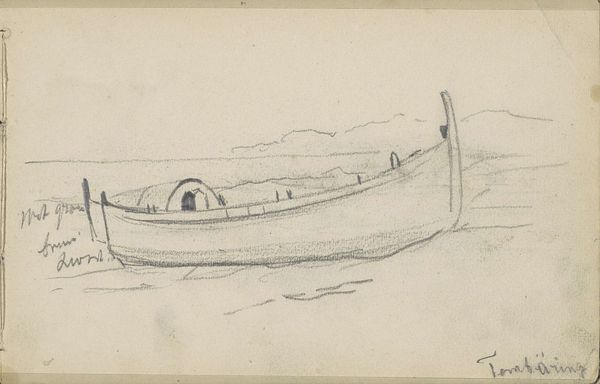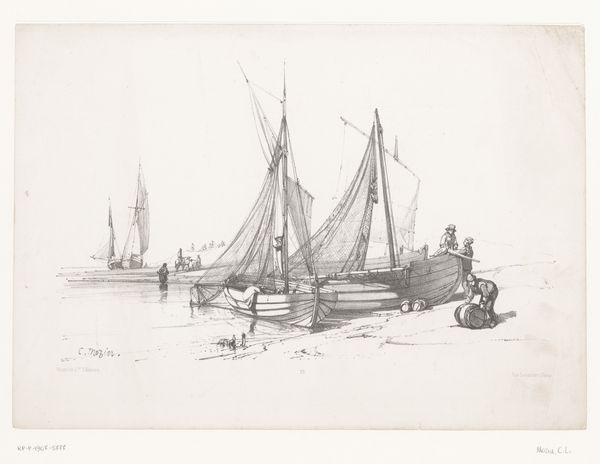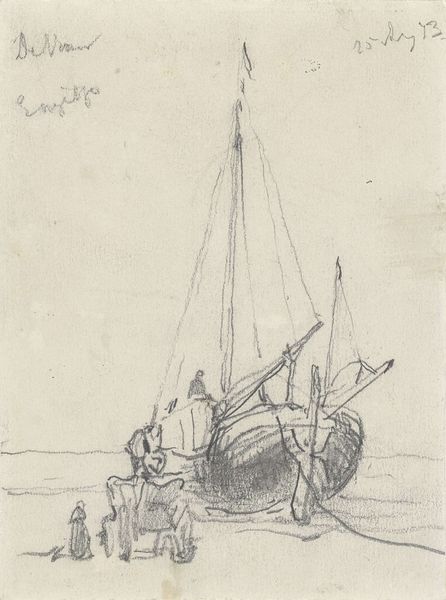
drawing, print, paper, ink, pen
#
drawing
# print
#
pen sketch
#
landscape
#
paper
#
ink
#
sketchwork
#
pen
#
genre-painting
#
realism
Dimensions: 157 × 241 mm
Copyright: Public Domain
Editor: This is Clarkson Stanfield's "Ostende Fishing Boat," a pen and ink drawing from around 1860. The quick sketchwork really captures the rocking motion of the boat, but it feels incomplete. What do you see in this piece beyond a simple nautical scene? Curator: I see more than just a genre scene; I see a visual document subtly hinting at the socio-economic realities of maritime life in 19th-century Europe. The sketch, though seemingly simple, alludes to the labor and the sometimes precarious existence of these fishing communities. Notice the boat itself – how does the rendering of the vessel speak to broader narratives of maritime work and risk? Editor: Well, it does look rather worn, doesn't it? The pen strokes aren't romanticizing the boat. It suggests a life of use. But does that elevate the drawing to a social commentary? Curator: Perhaps "commentary" is too strong. However, we can consider how Stanfield, even with a seemingly straightforward subject, touches upon the often-harsh realities faced by working-class individuals. Consider also the date. What were the political and social landscapes of 1860? The industrial revolution was transforming labour. Is there any relationship here? Editor: I guess I hadn't thought about it that way, but placing the boat and its occupant within the context of labor and industrial change certainly adds a layer of meaning to what I saw as simply a sketch. Thank you for illuminating the broader context. Curator: The beauty of art history is its capacity to illuminate unseen social dynamics through a visual language. Considering context, this seemingly modest sketch resonates with wider historical narratives about labour, class, and resilience. It’s an invitation to look deeper.
Comments
No comments
Be the first to comment and join the conversation on the ultimate creative platform.
